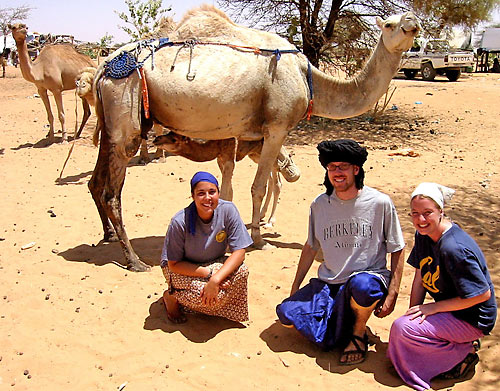Rearranging Deck Chairs on The Mauritania
In one of the world’s poorest countries, mothers watch their children go hungry, men struggle to find work, the government robs its own people, and development workers discuss the difference between a result and an impact.
Imagine the scene: two-dozen development workers from an international NGO sit amidst empty soda cans and packages of cookies in an air-conditioned hotel. All eyes are on the facilitator up front, as flip charts are flipped, slides slide, and problems are pondered.
It’s all in French, and nothing makes sense. This is not terribly surprising, but then a slide is shown translating USAID’s latest project planning terminology into French. Inputs, outputs, results, impacts, projects, programs, objectives, strategic objectives.
What a relief! It’s not a language barrier I’m bumping into, but rather a nonsense barrier. What, after all, could possibly be the difference between a result and an impact? Or an objective and a strategic objective? And how could it possibly be worth an entire workday to talk about it?
The seemingly innocent tagging of the word ‘strategic’ onto an activity is the focus of this column. At first it looks clever, but in fact it is something that people who aren’t doing anything do to look busy.
I should know.
For awhile I worked in the field of strategic communications. Many of the most productive practitioners in this area call themselves public relations or PR professionals. I learned that the ones talking about strategic communications were the ones to be avoided at all costs.
The worst day in the history of mankind, according to Jean Jacques Rosseau, was the day the noble savage first drew a circle around a piece of land and said “that’s mine.” I’m not about to argue with a man who is far more famous and dead than I am, but I will nominate a second worst day: the first time someone put the word “strategic” in front of another word.
Strategic objectives. Strategic communications. Strategic planning. Dazzling, right? Intimidated, aren’t you? But what does it all mean? Nothing! So then, you can just take the word out, right? Not so fast. Try those words on their own. Objectives. Planning. Communications. They sound flat, like an AM radio in the 21st century.

